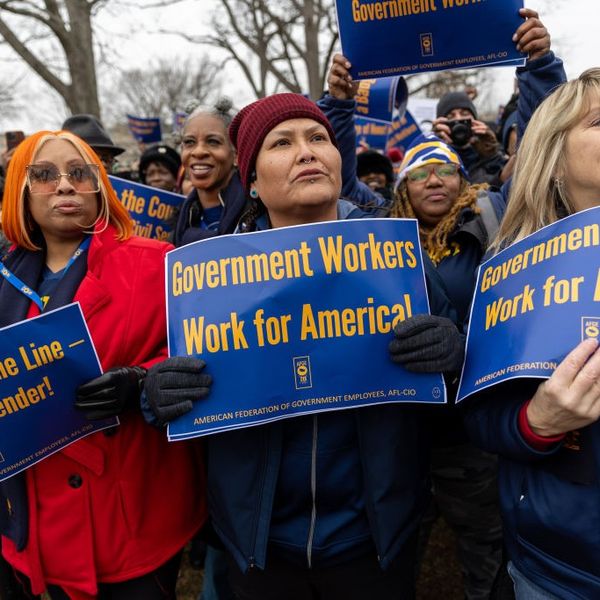A federal judge on Tuesday halted an Obama administration rule that would have expanded overtime pay for millions of workers, a decision that was slammed by employees' rights advocates.
The U.S. Department of Labor rule, which was set to go into effect on December 1, would have made overtime pay available to full-time salaried employees making up to $47,476 a year. It was expected to touch every nearly every sector in the U.S. economy. The threshold for overtime pay was previously set at $23,660, and had been updated once in 40 years--meaning any full-time employees who earned more than $23,600 were not eligible for time-and-a-half when they worked more than 40 hours a week.
Tuesday's decision keeps the rule from being implemented while U.S. District Judge Amos Mazzant of Texas considers opposing arguments by a number of business groups, including the U.S. Chamber of Commerce, and 21 states. Mazzant said the Labor Department had overstepped its authority by raising the threshold so significantly.
With the GOP set to control both chambers of Congress and the White House, the rule faces an uncertain future--but Republicans and corporate interests are already rejoicing.
Marc Freedman, executive director of labor law policy at the Chamber of Commerce, told the New York Times that the judge's language indicates he is against the rule, stating, "We are, assuming that this preliminary injunction holds and there isn't an appeal or some other thing that disrupts it, done with this regulation."
Workers' rights advocates reacted with dismay and outrage. David Levine, CEO and co-founder of the American Sustainable Business Council, mourned the ruling, saying the opponents were "operating from short-sighted, out-moded thinking."
"The employees who will be hurt the most and the economies that will suffer the most are in the American heartland, where wages are already low," Levine said. "When employers pay a fair wage, they benefit from more productive, loyal, and motivated employees. That's good for a business' bottom line and for growing the middle class that our nation's economy depends on. High road businesses understand that better compensation helps build a better work culture."
The Labor Department released a statement which read, "We strongly disagree with the decision by the court, which has the effect of delaying a fair day's pay for a long day's work for millions of hardworking Americans. The department's overtime rule is the result of a comprehensive, inclusive rulemaking process, and we remain confident in the legality of all aspects of the rule."
Christine Owens, executive director of the National Employment Law Project (NELP), noted that the rule would have impacted up to 12.5 million workers, citing research by the Economic Policy Institute (EPI).
"The business trade associations and Republican-led states that filed the litigation in Texas opposing the rules have won today, but will not ultimately prevail in their attempt to take away a long-overdue pay raise for America's workers," she said. "Unfortunately, for the time being, workers will continue to work longer hours for less pay thanks to this obstructionist litigation."
EPI's Ross Eisenbrey said, "This is an extreme and unsupportable decision and is a clear overreach by the court. For 78 years the Department of Labor has used salary as well as duties to determine overtime eligibility. Congress has amended the Fair Labor Standards Act many times and has never objected to the salary test."
"The law is clear on this," Eisenbrey said. "The District Court's ruling is wrong. It is also a disappointment to millions of workers who are forced to work long hours with no extra compensation, and is a blow to those Americans who care deeply about raising wages and lessening inequality."


